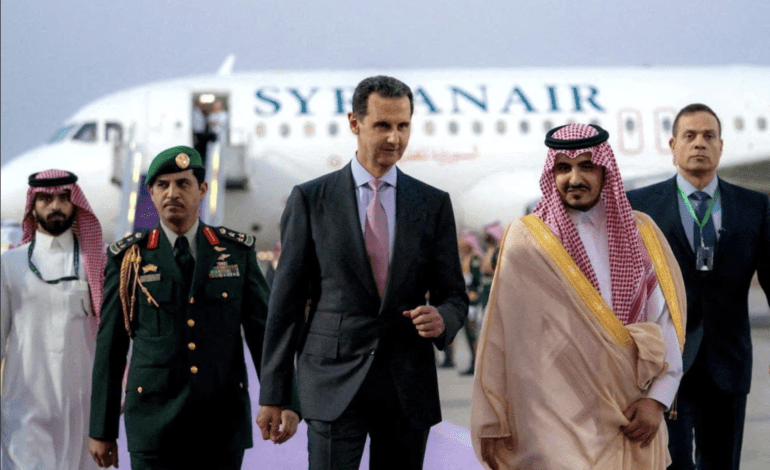President Bashar al-Assad has always seen time as an ally in the Syrian civil war, along with the Iranian and Russian firepower that helped him defeat his enemies, according to sources familiar with his thinking.
After more than 12 years of civil conflict that made him a reviled figure to much of the world, his strategy appears have paid off as Arab states that once shunned him welcome him back into the Arab League.
It marks the latest twist in the path of a leader who once aimed to become an eye doctor, but found himself being groomed to succeed his father, Hafez al-Assad, as head of state after his older brother Basil was killed in a car crash in 1994.
His presence at an Arab summit hosted by Saudi Arabia in Jeddah on Friday appears to seal his rehabilitation in the region — a diplomatic triumph alongside the military victory he proclaimed years ago, though some parts of Syria are still outside his grasp.
It would have been unthinkable earlier in the conflict when Gulf Arab states swung behind rebels battling to oust Assad, and then-U.S. President Trump branded him an “animal” for using chemical weapons — an accusation he vehemently denied.
Assad, 57, owes his survival in large part to Iran and Russia. But geopolitical shifts in the Middle East have strengthened his hand as the region’s most powerful states pursue entente over conflict, among them Assad’s Shi’a Islamist backers in Tehran and their Sunni rival Saudi Arabia.
But Assad always saw time as an ally on his side.
Western sanction remain in place, however, with no sign at all that will change soon.
Assad saw the war as a foreign-backed conspiracy against a proud Arab state that opposed the United States and its Middle Eastern allies, especially Israel.
Helped by Russia’s air force and Iran-backed militias, Assad clawed back the bulk of Syria in years of conflict, deploying siege warfare to recover areas such as eastern Ghouta — a tactic condemned as “medieval” by U.N. investigators.
The determination with which he set about crushing his enemies drew comparisons with his father, who defeated insurgents in Hama in the early 1980s.
Justifying his response, Assad compared himself to a surgeon cutting into a wound.
“Do we say to him:, ‘your hands are covered in blood?’ Or do we thank him for saving the patient?” he said in Syria’s parliament in 2012.
Even in the early years of the conflict, as rebels seized town after town, he appeared confident of victory.
But while he took back most of Syria, swathes of the country remained outside state control, cities were flattened, the death toll topped more than 350,000 people and a quarter or more of the population fled abroad.
Assad enjoyed the backing of those Syrians who believed he was saving their country from insurgents bent on replacing him with hardline Islamic extremists.






Leave a Reply